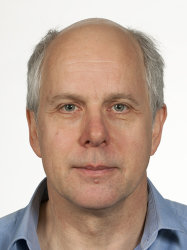Accelerators for science and society
I lead the development of LhARA, the Laser-hybrid Accelerator for Radiobiological Applications, which is conceived as the highly flexible accelerator required to elucidate the mechanisms that determine the impact of ionising radiation on tissue. LhARA will exploit a high-power laser to drive the creation of a large flux of protons or light ions which will be captured using a novel plasma lens. Post-acceleration, performed using a fixed field alternating gradient accelerator (FFA), will preserve the unique flexibility in the time, energy, and spatial structure of the beam afforded by the laser-driven source.
The multidisciplinary LhARA consortium is composed of radiobiologists, clinical oncologists, laser-plasma accelerator physicists, accelerator scientists, and instrumentation specialists drawn from UK and European universities, national labs, clinical centres, and industry. The LhARA consortium believes that the technologies demonstrated in LhARA have the potential to be developed to make “best in class” treatments available to the many by reducing the footprint of future particle-beam therapy systems.
LhARA is central to the R&D programme of the Centre for the Clinical Application of Particles (the CCAP) of which I am the Director. The Centre is a multidisciplary collaboration of personnel from Imperial's Faculty of Medicine, the Imperial Academic Health Science Centre, the Imperial College NHS Healthcare Trust, Imperial's Department of Physics, the Imperial CRUK Cancer Centre, the Institute of Cancer Research, the John Adams Institute and the Oxford Institute for Radiation Oncology.
My research interests also include the development of muon accelerators to serve future high-precision neutrino experiments and as the basis of a multi-TeV muon collider. As spokesman of the international Muon Ionization Cooling Experiment I led the construction project and the successful commissioning and data taking programmes which culminated in the publication in Nature of the collaboration's seminal demonstration of ionization cooling. The muon is unstable and so the beam must be accelerated rapidly to the desired energy. Fixed-field alternating-gradient accelerator (FFA) technology has been shown to provide the ideal solution to the acceleration of muon beams. Therefore the development of FFA technology provides a key link between my work on LhARA and my work on muon beams for particle physics.

